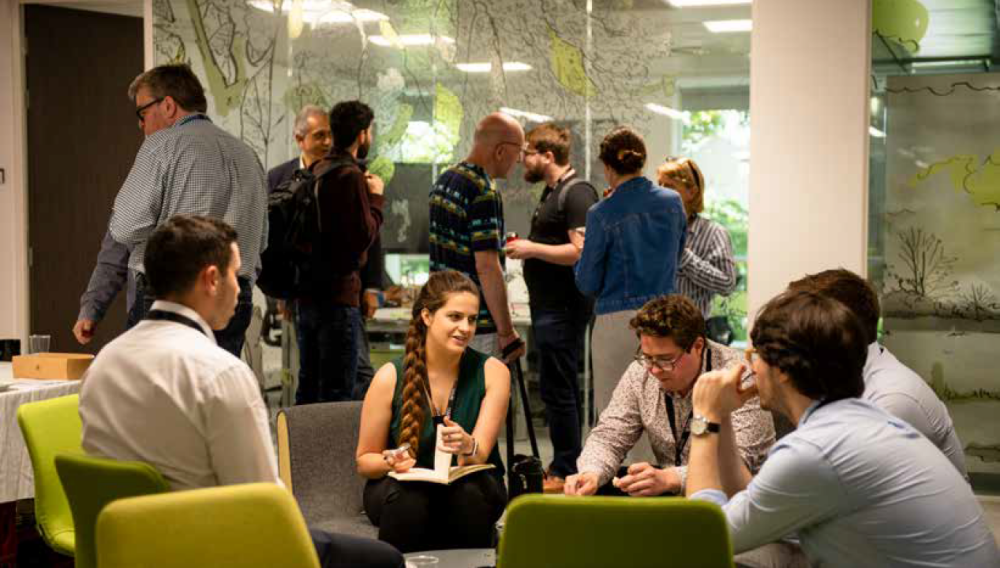The University of Bristol is home to some of the leading researchers in the field of quantum information science and engineering and is a major player in accelerating the translation of quantum technologies from the lab into the marketplace. The region has grown a thriving ecosystem of quantum technology start-ups, building on world-class research and capitalising on Bristol’s unique enterprise activities and facilities to bring ‘quantum’ into everyday lives.
Quantum Information is an emerging discipline, which promises enormous technological advancement with real global impact. From new ways of encrypting data – it’s protected by the laws of physics to quantum computers promising solutions to challenges far beyond the reach of current computing. Quantum technologies are changing and will continue to change our world. Since 2014, the UK government has invested £1 billion to develop the UK National Quantum Technologies Programme (UKNQTP) (uknqt.epsrc.ac.uk) focussing on quantum research and the University of Bristol has played a major role in this activity.
The University of Bristol’s Quantum Information Institute (BQII) brings together the broader quantum and related research activity from all over Bristol and builds upon the knowledge of these leading academics, to develop a pipeline of talent and world-class research. The phenomenon began with pioneering research developed by the Quantum Information Theory Group and the Quantum Engineering Technology Labs (QETLabs).
Together with global partners such as Google the Quantum Information Theory Group looks at foundational fundamental aspects of quantum information science. This group is world-renowned for their research into quantum computing and quantum foundations and collaborate closely with their experimental colleagues in QET Labs. QET Labs is a cross-disciplinary team of over 100 academics, engineers and scientists, who are driving the translation of quantum science into real concept demonstrators which will be the springboard for the commercial success of quantum technologies.
In 2014, Bristol established a programme to create the future leaders of the Quantum revolution. It was awarded the Quantum Engineering Centre for Doctoral Training by the Engineering and Physical Sciences Research Council (EPSRC) to support the development of new quantum research talent through their training programme for PhD students. Since then, it has built a network of big industry players and works with them to provide real-world problems with quantum solutions. This gives their PhD students both experience of working in a commercial setting as well as access to some of the most eminent researchers in quantum today.
Over the first four cohorts, QTEC has helped to create a third of the UK’s funded quantum start-ups and as of January 2021 these companies have raised a total of £44.8 million in equity, contract and grant funding and created over 126 high value jobs within the UK.

In 2018, the University of Bristol and the West of England Combined Authority co-funded the Quantum Technology Innovation Centre (QTIC) which will cement Bristol’s position as the hub for quantum commercialisation. QTIC will provide state of the art laboratories, workspaces and equipment to support the development of quantum technologies from concept to market. It is currently in its pilot phase and in the future, QTIC will continue to bring in big industry to work alongside Bristol’s quantum researchers, start-ups and SMEs and will facilitate new, exciting collaborations which will further accelerate the development of market-ready quantum technologies.
In the last 6 years, Bristol has become a global leader in quantum innovation and is set to continue to grow rapidly over the next decade. It offers a pipeline to take Bristol’s quantum research from benchtop
to business as seen through the development of successful quantum businesses, such as:
- Phasecraft (phasecraft.io), developing the fundamental quantum theory and software to enable quantum computers to solve real-world problems.
- FluoretiQ (fluoretiq.com), developing technology to enable identification of harmful bacteria in mere minutes.
- QLM Technology (qlmtec.com), developing compact gas detection and imaging systems for the detection of low-concentration gas leaks.
As the Bristol quantum ecosystem continues to grow and thrive, new quantum companies will be drawn to Bristol to benefit from the expert knowledge, unique training and specialist facilities which are only available here. This is already attracting new and existing businesses to establish in the region and in the future, Bristol will be globally known as the home of quantum technology.













